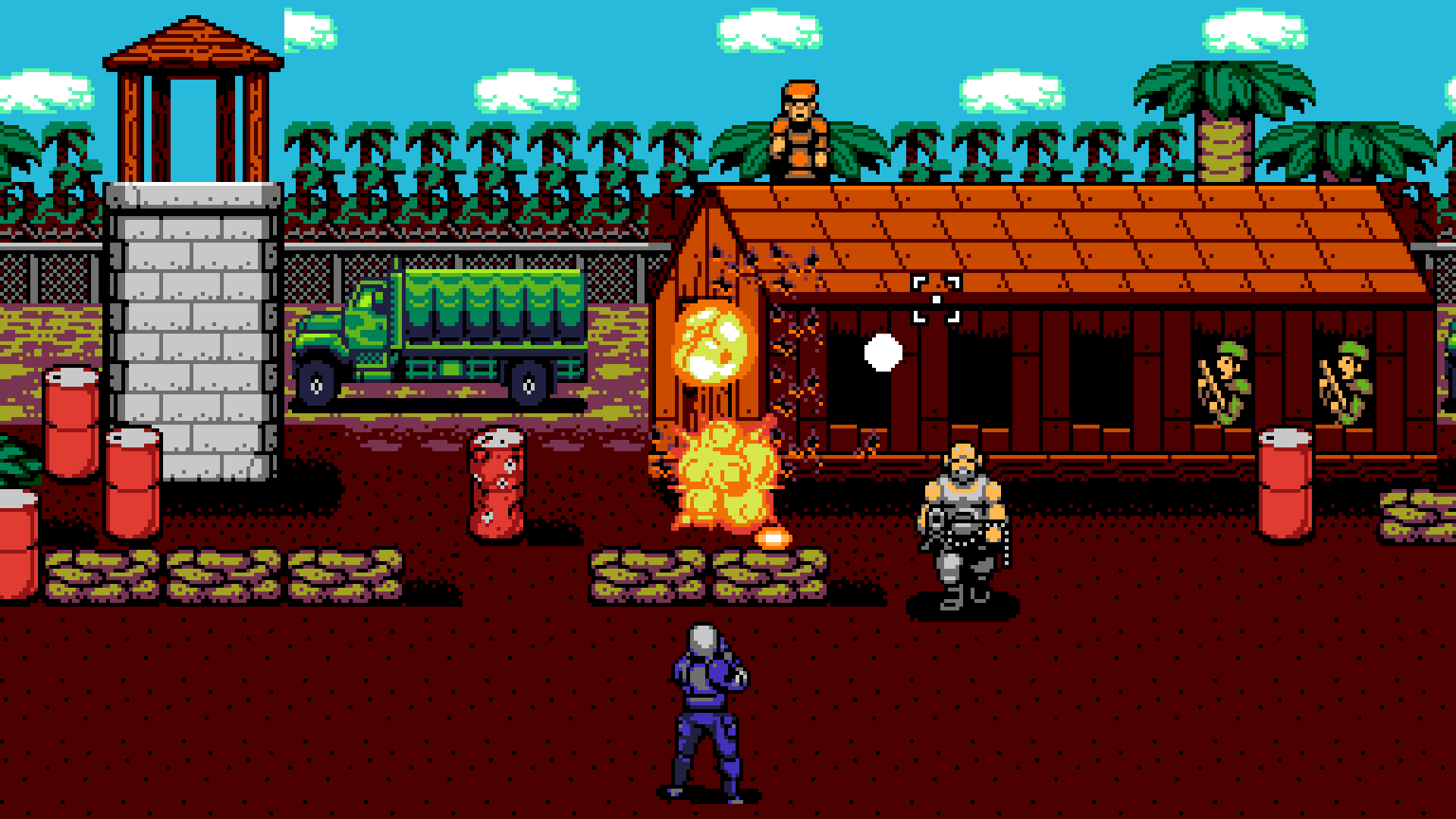The obvious comparison point for all this, at least for nerds of a certain vintage, will be clear: Cult Nintendo DS title Retro Game Challenge (and its sadly never-exported-from-Japan sequel), which pulled this same basic “fake games from fake consoles from a fake past” conceit back in 2007. Players who come to UFO 50 looking for a direct recreation of that experience might come away a little disappointed, though: Where that game prided itself on building up the fiction surrounding its faux games, complete with fake manuals and fake magazines for players to peruse in between playing its riffs on Mario or Galaga, UFO 50 is a bit more barebones in its presentation. (You get a few sentences of notes per game, and that’s about it.) Given a choice between putting their emphasis on the games, or on the materials surrounding them, the small Mossmouth team understandably focused on function over form; we might wish for a more lush package, but it honestly feels churlish to complain, when the actual content of the collection is far more expansive than we’ve had time to even come close to coming to terms with.
As to that content: We wish we could declare each of UFO 50′s 50 games a retro-indie masterpiece, each one preserving what worked from classic game design while jettisoning the chaff, but, uh… No. Don’t get us wrong: There are extremely good games in here, some more than worth the collection’s $25 asking price all on their own. (We have lost too many hours this past week already to arena shooter Overbold, or mechanically gorgeous dungeon crawler Valbrace.) But many of the games in the collection feel torn between their desire to stay true to the clunky, frequently unfair controls of console ages past, and being genuinely fun games. Yes, it feels authentic that Barbuta, the very first game in the collection, happily wipes your progress every time you lose all your lives, erasing what could be 20 minutes of very fussy trap and dungeon navigation. Whether it’s fun is a much thornier question.
But while we can’t champion UFO 50 as 50 instant masterpieces, we also can’t paint it with the broad brush of being uniformly old-school ornery for its old sake—or a nostalgia exercise with no appeal for players who didn’t grow up pulling battered NES carts off the rental wall of their local video store. The truth is that this really is 50 different games, each with their own control schemes and design hooks, and the quality is inevitably going to vary. Part of the fun of the package, in fact, is in that kind of discovery: For every game you play five minutes of before concluding “Eh, not for me,” you’re just as likely to run into something like the boldly strange Mooncat, or “What if we’d invented tower defense games on the NES” hypothetical Rock On! Island. At the bare minimum, each title has something genuinely clever powering it, whether it’s Mortol‘s attempt to build an action game out of Lemmings DNA, or Avianos‘ bird-based war gaming. Half the time, when we caught ourselves thinking “Okay, we get it, let’s move on” after poking around at a game, we turned out to be basically right; the other half, though, we inevitably stumbled into some new secret or twist of play that deepened the experience of an individual title.
UFO 50 is, in other words, a game that trusts you, the player, to find the fun—with the promise that there is a lot of fun to be found in this odd, massive toy chest. We should note that the game does have a few curation tools—if you scroll down to the bottom of the collection, you can filter games by whether they’re meant to be more reflex based, or cerebral, for instance, or focus in on the title’s large number of same-screen multiplayer games. (Breaking free of the chronology is a good idea in any case; although UFO 50 doesn’t pay as much attention to the “complexity increases as fictional time passes” conceit that powered Retro Game Challenge, you’ll still tend to find more robust experiences closer to the end of UFOSoft’s fictional lifespan.) We’re sure we’ll soon see a cottage industry of guides and wider critiques pointing out hidden gems buried in its library. But honestly, we recommend just doing what the game itself advises: Scroll through until you find a title that sounds cool, blow off the fictional dust, and take a gamble on the chance you’ll hit something that’ll be one of your favorite games of 2024.


 Keep scrolling for more great stories from A.V. Club.
Keep scrolling for more great stories from A.V. Club.